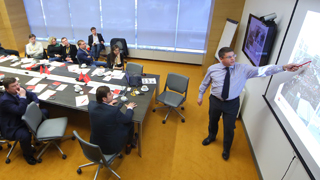
Sociálny dialóg
Sociálny dialóg možno definovať ako rokovania, konzultácie, spoločné akcie, diskusie a výmenu informácií medzi zamestnávateľmi a pracovníkmi. Dobre fungujúci sociálny dialóg je kľúčovým nástrojom pri formovaní pracovných podmienok zahŕňajúci rôznych aktérov na rôznych úrovniach. Prispieva k dosiahnutiu rovnováhy medzi záujmami pracovníkov a zamestnávateľov a k hospodárskej konkurencieschopnosti, ako aj sociálnej súdržnosti.
Nedávne politické diskusie na úrovni EÚ poukázali na to, že najmä od krízy v roku 2008 sa objavujú nové diskusie o sociálnej spravodlivosti, demokracii, kvalite práce a nových modeloch pracovnoprávnych vzťahov, ktoré spochybňujú tradičné pracovné vzťahy a systémy sociálneho dialógu.
Tridsať rokov po historickej inaugurácii európskeho sociálneho dialógu vo Val Duchesse v Bruseli, Komisia spustila znovu proces – nový začiatok pre sociálny dialóg – na podujatí vysokej úrovne, na ktorom sa 5. marca 2015 zúčastnili organizácie sociálnych partnerov z celej Európy. Európsky sociálny dialóg je nástroj sociálnej politiky EÚ, ktorý priamo prispieva k formovaniu pracovnoprávnych predpisov a politík EÚ.
- Podujatie Európskej komisie: Nový začiatok pre sociálny dialóg
- Článok blogu nadácie Eurofound: Od Val Duchesse po Rigu: ako obnoviť sociálny dialóg?
















